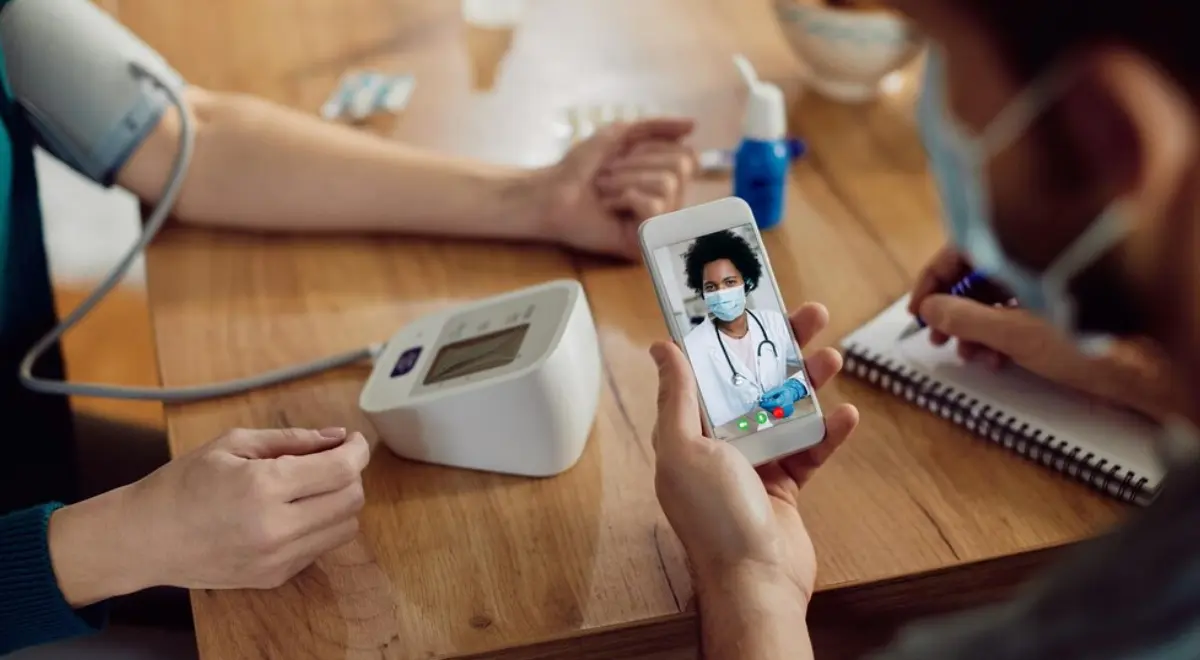How RPM and CCM is Laying the Foundation for Value-Based Care?

Value-based care has evolved in recent years as a significant approach to providing excellent healthcare that is in the best interests of both patients and medical professionals. It promotes better patient outcomes, improves patient experience, enhances provider experience while cutting healthcare delivery costs and boosting the bottom line. Value-based care can be achieved through programs like Remote Patient Monitoring (RPM) and Chronic Care Management (CCM).
Remote Patient Monitoring (RPM) programs focus on collecting and analyzing physiologic data in near real-time to help care providers remotely track and manage a patient’s chronic condition.
Chronic Care Management (CCM) includes virtual or remote care offered to Medicare beneficiaries with multiple chronic conditions anticipated to last for at least one year, more, or until the end of life.
Table of Contents
ToggleWhat is Value-based Care?
Value-based care is a proactive approach focusing on patient outcomes and how clinicians can successfully improve treatment quality with specific measurable results to prevent hospitalizations or medical complications.
Healthcare providers are reimbursed based on the quality of care they offer, as well as reimbursements they receive for increasing monitoring efficiency.
Role Of RPM and CCM In Value-Based Care
When a healthcare provider uses an integrated virtual care management solution to set up Remote Patient Monitoring and Chronic Care Management programs, a stepping stone for value-based care is being laid. It helps prevent readmissions and improve health outcomes, by ensuring:
- More Clinical Time
Patients who are chronically ill and have several chronic diseases generally require care from more than one clinician or specialist, and their treatment plans may need to be adjusted frequently. RPM and CCM programs give care teams extra clinical time to focus on various or complicated variables affecting care, rather than just the primary health concern.
- Optimized Care Plans
CCM and RPM provide the framework for value-based care by ensuring high quality care for patients by providing care instructions and reviewing patient data. Since the clinical time is neither limited nor confined by doctors’ schedules, patients believe they are actually cared for with an added layer of support, increased involvement, accountability, and satisfaction.
- Significantly Reduced Costs
Since chronic care imposes a tremendous burden on the healthcare business, the purpose of value-based care is to lower costs. Both CCM and RPM encourage preventative care, resulting in significant savings for patients, providers, and payers alike. Being proactive prevents a patient’s condition from deteriorating and minimizes the risk of hospitalization, thereby reducing healthcare costs to a great extent.
- Better Primary Care
When it comes to maintaining treatment and preventing hospitalization, primary care providers are the first line of defense. Despite contributing little to overall healthcare savings, they can cut downstream patient spending by 90%. To be effective, a value-based care model requires primary care to be accessible and efficient, so that they can innovate and maximize patient care while also providing a chance to generate new revenue streams.
- Stronger Relationships
Greater patient involvement and engagement with the care team results in a transparent relationship between the patient and the provider. Patients are more satisfied and motivated to satisfy the provider’s expectations in terms of compliance. Care teams can also provide more individualized care and attention while working with a stronger sense of accountability.
RPM and CCM Goes Hand-in-Hand
A well-organized RPM program can help CCM by providing immediate patient data insights for proactive treatment. CCM and RPM work together to consolidate care delivery, resulting in better patient outcomes, including:
- Improved patient outcomes with timely detection and medical intervention.
- Optimizing the patient experience, including improved engagement and satisfaction.
- Lower healthcare expenses by reducing ER visits and hospitalizations.
- Reduced overall stress on the healthcare system.
- Increased awareness, education, and compliance among patients and caregivers.
- RPM and CCM payments generate additional revenue streams for healthcare providers.
By merging RPM and CCM to provide value-based care, healthcare providers empower a unified care model that can be tailored to their specific care delivery needs.
RPM Empowers CCM To Work Better
While it is evident that CCM and RPM complement each other well, it is important to emphasize that they have distinct roles to accomplish in the healthcare model. Remote Patient Monitoring is a powerful tool that aims to improve care for patients with chronic diseases. When combined with CCM, it ensures a data-driven and holistic approach to improving patient outcomes.
CCM is the care program whereas RPM is the data monitoring aimed to improve its effectiveness.
Improve Value-based Care With HealthArc’s Digital Health Platforms
HealthArc’s integrated digital health platform enhances chronic illness outcomes by providing continuous and proactive remote patient care to high-risk chronic patients. Our HIPAA-compliant solutions and FDA-approved monitoring devices assure compliance, dependability, and security.
To learn more about our RPM and CCM systems, request a free demo or contact +201 885 5571 to set up a consultation.
Most recent blogs
Categories
- Advanced Primary Care Management
- Behavioral Health Integration
- Cellular Remote Patient Monitoring
- Chronic Care Management
- Chronic Care Management Billing
- Chronic Care Management CPT Codes
- Chronic Care Management Program
- Chronic Care Management Software
- Digital Health Platform
- Principal Care Management
- Principal Care Management CPT Codes
- Remote Care Programs
- Remote Monitoring Devices
- Remote Patient Care
- Remote Patient Monitoring
- Remote Patient Monitoring Billing
- Remote Patient Monitoring CPT Codes
- Remote Patient Monitoring Devices
- Remote Patient Software
- Remote Therapeutic Monitoring
- Remote Therapeutic Monitoring Billing
- Remote Therapeutic Monitoring CPT Codes
- Telemedicine & RPM
- Transitional Care Management
- Transitional Care Management Billing
- Transitional Care Management CPT Codes
Related Posts
- February 21, 2025 | Read Time: 5 mins
RPM’s Role in Identifying Early Symptoms of Chronic Conditions for Prevention
- February 14, 2025 | Read Time: 4 mins
Monitoring Post-Surgical Recovery With RPM Systems
- February 10, 2025 | Read Time: 5 mins






